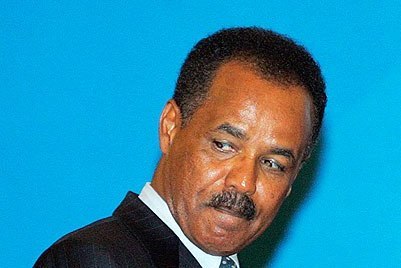Eritrea labels UN Panel ‘witch-hunt’ against nation
By Tesfa-Alem Tekle
December 18, 2015 (ADDIS ABABA) – The Eritrean government has referred to the Commission of Inquiry on Eritrea (COIE) as unwarranted political witch-hunt against the Red Sea nation.

But the Eritrean reacted negatively charging that the action by the commission of inquiry was instead serving a political agenda against the government.
“This act constitutes yet another campaign of unwarranted witch-hunting of Eritrea by an entity which has clearly opted to instrumentalize human rights to serve political agendas,” the Eritrean government said in a statement extended to Sudan Tribune on Thursday.
The CoIE is tasked by the Human Rights Council to investigate alleged violations of human rights in Eritrea. The Commission’s mandate has been extended for one year to June 2016.
Recent reports by the commission revealed gross human rights violations in the East African nation including some violations which may amount to crimes against humanity.
The latest statement issued by the Eritrean government accused the CoIE of being afflicted by political bias and a litany of procedural flaws in the manner that it carried out its “investigative mission” from the outset.
The UN inquiry has held the regime in Asmara responsible for systematic, widespread and serious human rights violations that have created a climate of fear.
The accusations by the commission including possible crimes against humanity could subject Eritrean political and military officials to indictment at the International Criminal Court (ICC).
Angered by the commission’s report issued in June, Eritrea has elucidated parts of the reports it said were flawed.
Among the major anomaly Eritrea argued was the resolutions by the commission it said were adopted in an under-handed manner to serve overriding political agendas of certain countries.
It stressed the resolutions were mainly tabled and co-sponsored by Somalia and Djibouti.
Asmara said “Somalia and Djibouti were prodded to do so to give an African semblance to an exercise that was in reality led behind by certain powers.”
The three-member commission is chaired by Mike Smith (Australia), with Victor Dankwa (Ghana), and Ms. Sheila B. Keetharuth (Mauritius), who also serves as the UN Special Rapporteur on the situation of human rights in Eritrea.
The statement further went on to accuse the Special Rapporteur on Eritrea of having a personal history of “biased and subversive involvement” in the affairs of a sovereign nation.
“She was hand-picked for the job in spite of her compromised political stance and obvious conflict of interest” the statement said, adding “she was appointed to the COI; an explicable act bound to corrode the neutrality, objectivity and credibility of that new fact-finding body.”
The reclusive Eritrea nation has given deaf-ears to a number of requests by the UN commission of inquiry to visit Eritrea forcing the panel to collect information from asylum seekers.
The last COI’s report was based on a year-long process that involved 550 interviews and 160 written submissions. Eritrea however argues the process lacks rigorous validation for its veracity.
Referred by right groups as Africa’s North Korea, a east African nation, Eritrea, is amongst the world’s worst oppressive nations.
Currently there are an estimated up to 10,000 political prisoners languishing in the country’s “notorious” prison facilities. Most are reportedly in prison without any charges.
According to UN report, Eritrean government is using a “rule by fear” policy to maintain grip on power.
“It is not law that rules Eritreans, but fear,” said Sheila Keetharuth, the UN’s special rapporteur on human rights in Eritrea.
“Rule by fear – fear of indefinite conscription, of arbitrary and incommunicado detention, of torture and other human rights violations must end,” she said.
The government systematically silences anyone who is suspected of intentions or attempts to question or dares to criticize government policy.
President Isaias Afwerki has been in rule since the country gained independence from Ethiopia in 1993.
There is neither any functioning opposition party in Eritrea nor has ever been an election since independence as the tiny East African nation remains turned into one party state.
(ST)
